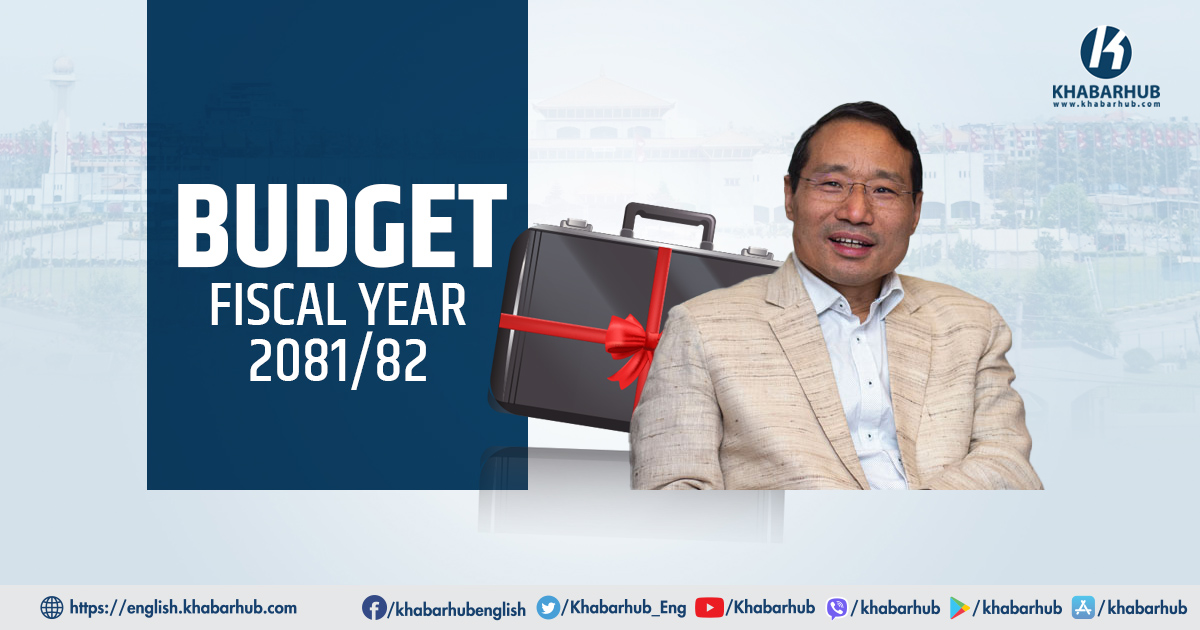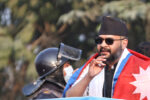KATHMANDU: The Open Budget Survey 2023 has revealed that Nepal has improved its budget transparency score to 50, higher than the global average of 45 out of 100.
Nepal scored 31 in public participation in the budgetary process, significantly higher than the global average of 15.
However, the country scored 36 in legislative oversight, below the global average, while the Supreme Audit Institution (SAI) oversight score of 67 exceeded the global average.
Despite this improvement, Nepal’s budget transparency score falls short of the minimum threshold score of 61, necessary to foster an informed public debate on fiscal policies and practices, according to the OBS summary.
Nepal now ranks 59th out of 125 countries surveyed in 2023, up from 77th in 2021, based on the International Budget Partnership’s (IBP) latest Open Budget Survey.
The overall results indicate an improvement in public access to budget information in Nepal.
This improvement is attributed to the timely publication of key budget documents, including the Year-End Report, which was delayed in the previous survey cycle of 2021, according to a press release by Freedom Forum, an organization that has been conducting the OBS in Nepal since 2009.
“Despite advocacy efforts from civil society organizations (CSOs) and media, Nepal has not yet produced and made publicly available the Pre-Budget Statement (PBS) and Citizen Budget,” said Freedom Forum’s Executive Chief and budget researcher Taranath Dahal.
The OBS 2023 survey provides a snapshot of Nepal’s current practices related to budget disclosure, opportunities for public engagement in the budget cycle, and the effectiveness of checks and balances.
Public participation is assessed based on formal opportunities for civic organizations and individuals to engage and provide input throughout the budget process.
Oversight institutions’ strengths are measured based on the roles played by legislatures and SAIs.
Recommendations for Budget Openness Reforms
To further improve the situation, the OBS has recommended several measures for the Nepalese government:
- Include data on the financial position of the government, macroeconomic forecasts, and estimates of expenditure arrears in the Executive’s Budget Proposal.
- Publish a glossary of budget terms along with the Executive Budget Proposal to improve budget literacy.
- Enhance the comprehensiveness of the Enacted Budget and other budget documents by publishing disaggregated and machine-readable data.
Additionally, the government should:
- Include actual expenditures for administrative classification, functional classification, and individual programs in the In-Year Reports (monthly and quarterly Economic Bulletins), and provide information on budget execution at the sub-national level (provinces and municipalities).
- Include comparisons between planned and actual revenues and outcomes, and between the original macroeconomic forecast and actual outcomes in the Year-End Report.
Improving Public Participation
Nepal needs to enhance public participation in the budget process by:
- Continuing and sustaining pre-budget consultations with stakeholders, including at the provincial level, and submitting the consultation report to Parliament.
- Informing citizens on which recommendations and inputs were used to improve budget policies.
- Actively engaging with vulnerable and underrepresented communities, either directly or through civil society organizations representing them.
Legislative and Audit Oversight
While the Supreme Audit Institution’s oversight is sufficient and above the global average, the Federal Parliament provides weak oversight during the planning and implementation stages of the budget cycle.
To improve oversight, the Executive’s Budget Proposal should be submitted to legislators at least two months before the start of the budget year.
Legislative committees should examine the proposal, publish reports with their analysis online, and review in-year budget implementation, publishing their findings online.
“In practice, ensure the legislature is consulted before the executive shifts funds specified in the Enacted Budget between administrative units or reduces spending due to revenue shortfalls during the budget year,” the OBS summary noted.
Additionally, a legislative committee should examine the Audit Report and publish a report with their findings online.
Global Budget Transparency
Global budget transparency has increased by 24% since 2008, but it remains below the sufficient level (a score at or above 61 out of 100) necessary for meaningful public engagement.
Legislative oversight and public participation are also below sufficient levels, while average audit oversight scores are adequate, though challenges remain to ensure governments follow up on audit reports.
The COVID-19 pandemic led many executive governments to bypass the legislature in budget practices, and legislative oversight practices have not rebounded since.
“In these turbulent times, governments can restore public trust in their ability to deliver by opening up the budget process to meaningful engagement.
Engaging the public is a winning proposition,” said Ana Patricia Muñoz, Executive Director of IBP.
She further emphasized that an open budget process is critical for democratic governments to deliver tangible gains to their people.
The Open Budget Survey 2023 assessed 125 countries, representing 95% of the world’s population and including budgets totaling more than $33.5 trillion in spending in Fiscal Year 2022.
This locally-led process involved in-country researchers, peer reviewers, and government reviewers who completed 30,000 indicators across all surveyed countries, assessing 672 publicly available budget documents and 299 participation mechanisms.
This latest survey round comes at a time of unprecedented challenges, including rising debt, inflation, conflicts, closing civic space, and climate change.
RSS









Comment